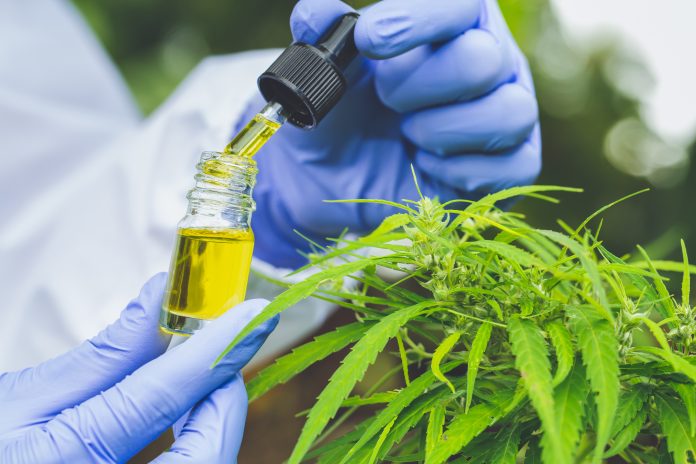Here, Paul Segal, chairman and co-founder of Symtomax, details what the most common myths about CBD are
Medicinal cannabis is by no means a new phenomenon. On the contrary, the cannabis plant has been used as a form of pain relief for thousands of years. However, it has only been within the past decade that modern consumers, and indeed some medical professionals, have begun to recognise its possible benefits – particularly in the form of CBD. From shampoos to lollipops, from coffee to dietary supplements and oils, UK consumers have an abundance of choice when it comes to CBD infused products.
Yet, despite their enthusiasm, many consumers remain in the dark about what CBD is, how it is related to cannabis, or what it actually does. Medical cannabis products contain various compounds and abbreviations, which can create confusion as to what goes into medicinal cannabis products. With such jargon overwhelming many consumers, it’s no wonder that there are certain misconceptions surrounding the market, particularly when it comes to CBD products.
With this in mind, I’ve rounded up what I think are five of the greatest myths regarding CBD in the UK and have attempted to separate the fiction from the facts. With a greater public understanding of how CBD and other cannabinoids can be used to alleviate a variety of ailments, we can hopefully enter 2020 with a more informed & heathier populous.
Myth 1 – CBD is illegal
To put it simply; no, CBD is not illegal. To offer a bit of background to this, the Cannabis plant (also known as cannabis sativa) produces over 140 different organic compounds (called cannabinoids). However only two are currently generally considered to be the primary active ingredients: Cannabidiol (CBD) and Tetrahydrocannabinol (THC). Many people tend to get these abbreviations mixed up, which has resulted in the misconception that CBD is illegal.
To make it clear, THC is the only psychoactive component within the cannabis plant, which creates the ‘high’ that comes with recreational cannabis. It is for this reason that the UK government sets a volume limit of 0.2% for THC in medical cannabis products – anything over this percentage is illegal. CBD on the other hand, is non-psychoactive, and once it has been processed properly, can be used in various consumer products.
Myth 2 – CBD gets you high
As stated in Myth 1, CBD is a non-psychoactive compound and so cannot get you ‘high’. However, many of those who have taken it do report an ‘uplifting’ effect on their bodies, and people who have smoked the cannabis plant may say that while THC gives you the high, CBD gives you the ‘body high’.
The reality here is that one of the effects of CBD, which has many hailing its curative properties for anxiety and depression, is how it effects the serotonin receptors in your brain. Generally speaking, one’s levels of serotonin are likely linked to your mood & possible mental unhealth and, although this is an area of active study, multiple animal studies have shown definite evidence of CBD’s stress-relieving effects, most likely due to it serotonin-receptor-augmenting effects. This is most likely the reason behind the ‘uplifting’ feeling one gets after taking CBD, through obviously more research is needed.
Myth 3 – CBD good, THC bad
It may be tempting to disregard THC entirely due to its illegality, however this would be an oversimplification. Despite the UK previously deeming all products exceeding the 0.2% THC limit illegal, the last year has seen a small amount of exceptions made – including the MS-spasticity-alleviating drug Sativex & the Cannabis Oil prescribed by Canadian & Dutch Doctors to Billy Caldwell and Alfie Dingley respectively. THC’s ability to soothe the nausea and suppressed appetite associated with chemotherapy has also been recognised, with a synthesised non-psychoactive capsule form of THC called Nabilone available through the NHS to alleviate such symptoms. However, it should be noted that Nabilone is only prescribed by a specialist when other treatments have not helped or are not suitable.
Myth 4 – You will notice the effects of CBD immediately
Like most tablets, supplements or oils, the time taken for a CBD product to work its way into your system is dependent on both the individual and the method of consumption. For example, if you’re putting a few drops of CBD oil under your tongue, it will enter your system much quicker than a dietary supplement. However, the industry is developing new methods of CBD consumption every day to make the process much more efficient. For example, Symtomax has developed a new Oral Tab which, when placed on the inside of the user’s cheek, can offer either an instant dose of cannabinoid, or a timed release over a few hours. Such developments hope to enable more users to experience the benefits of CBD as quickly as possible.
Myth 5 – CBD is the ultimate ‘cure’
There is undoubtedly a constant stream of research from academic bodies, including The National Academies of Sciences, Engineering and Medicine, that highlight the potential benefits of using CBD. However, it is important to remember that there is still insufficient evidence in the UK to suggest that it can be used as a medical treatment. Due to this, it is sold as a dietary supplement. Whilst many people who take the supplement praise its benefits, it is important to remember that CBD products cannot “fix” ailments, until there is sufficient evidence to prove otherwise.












There is one non-factual statement in here. 0.2% is not the legal limit of THC in a CBD containing product. The correct legal limit is 1mg per container. The 0.2% is for the plant material ONLY and is nothing to do with the finished product.